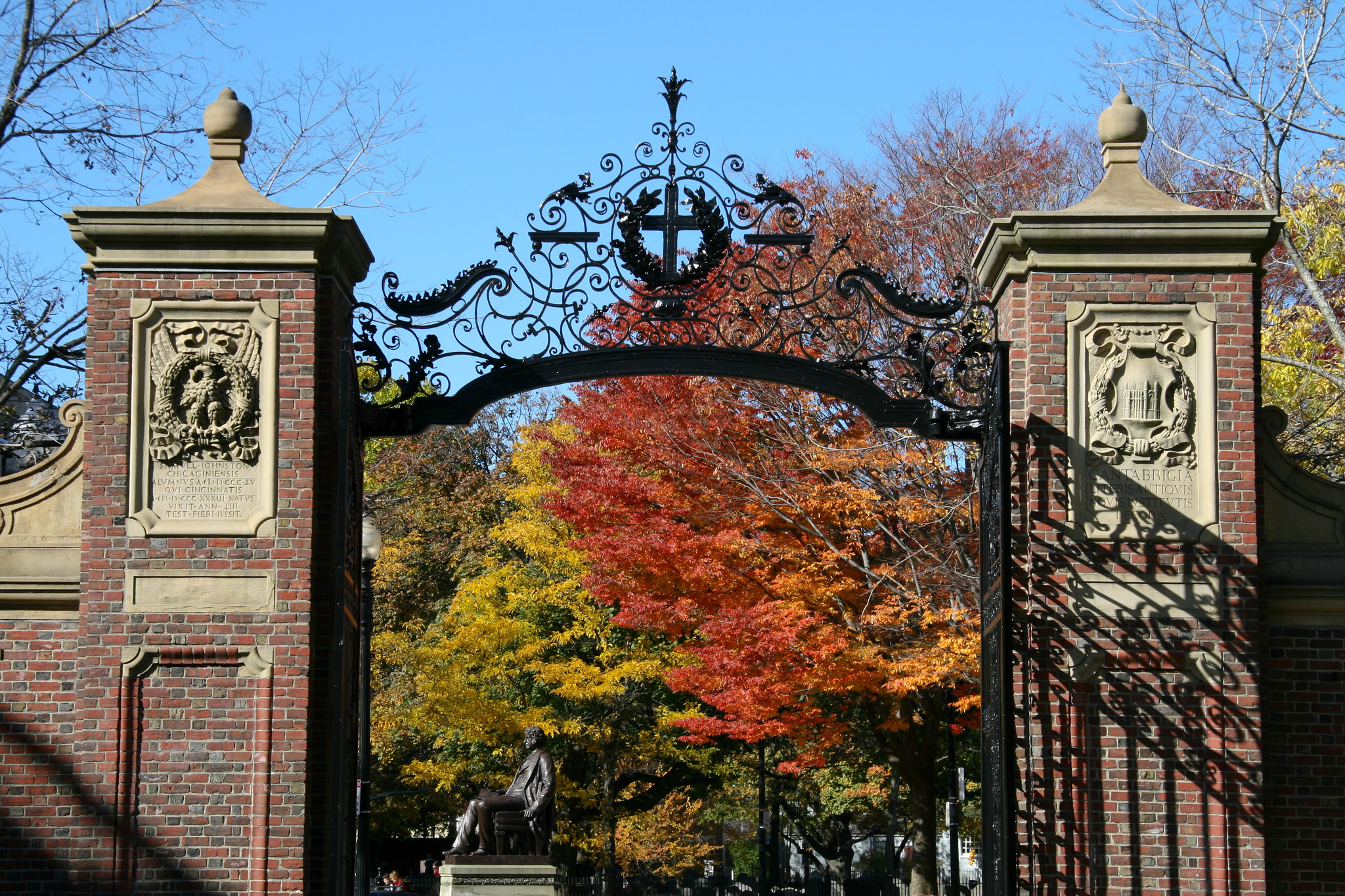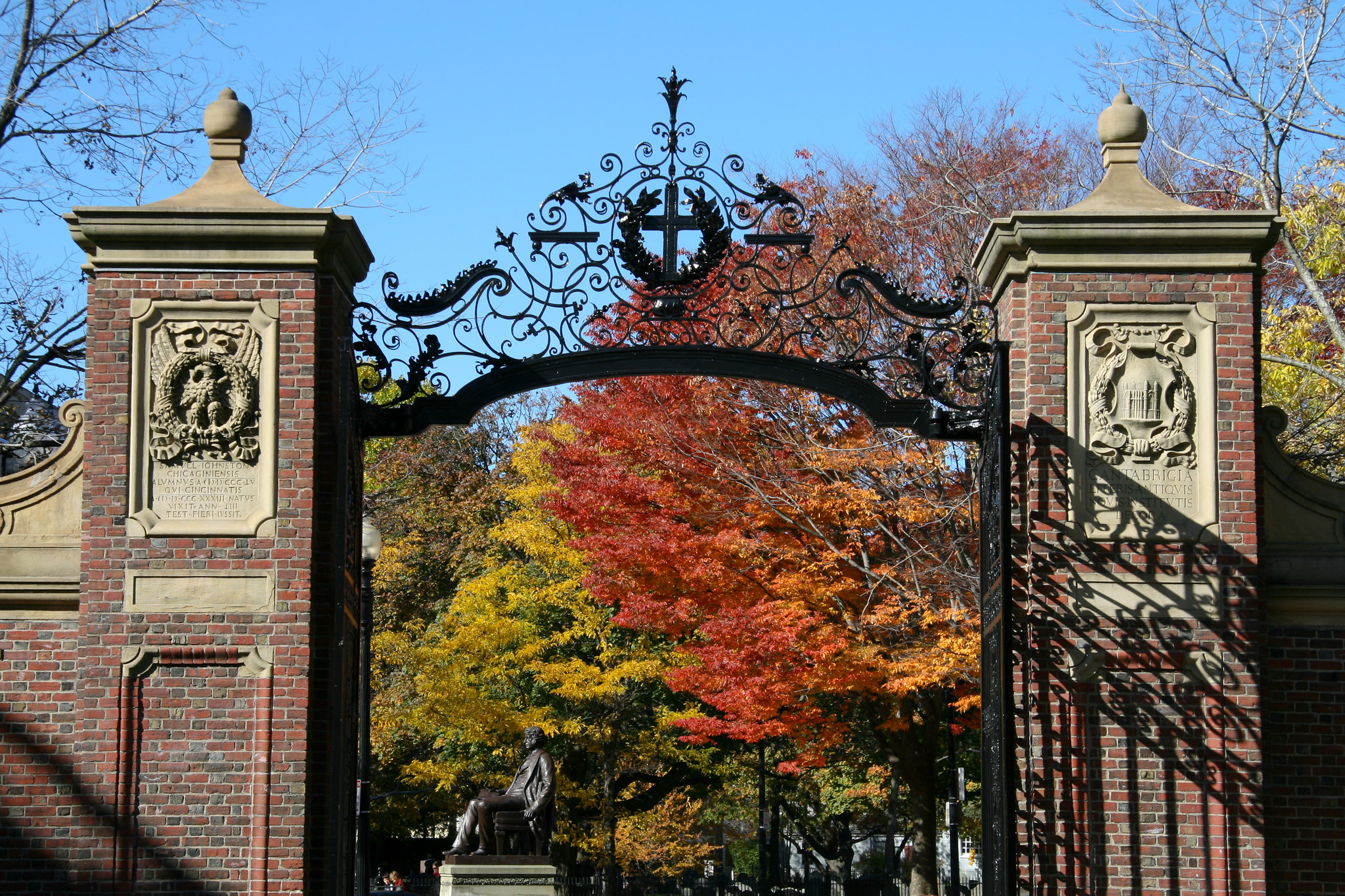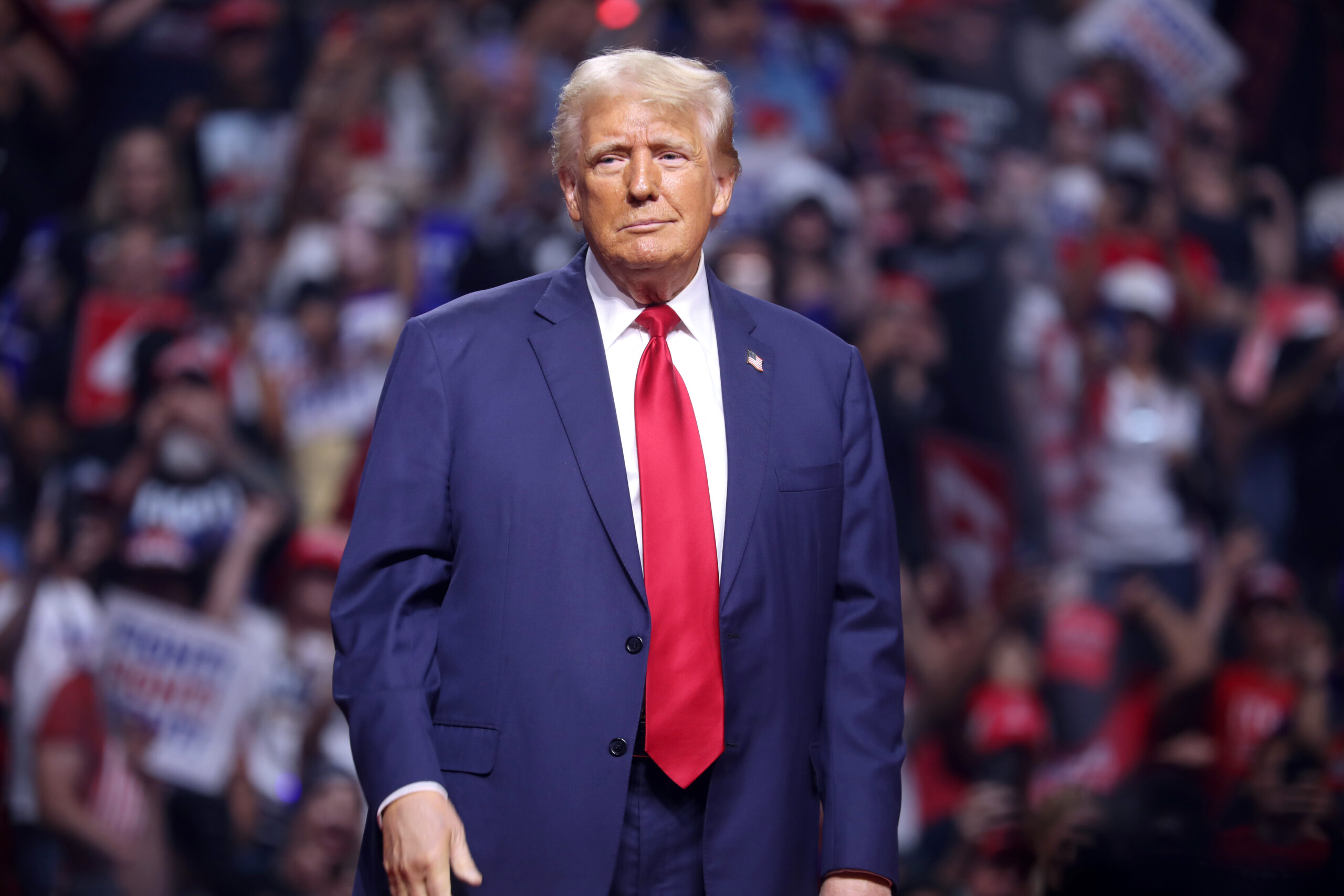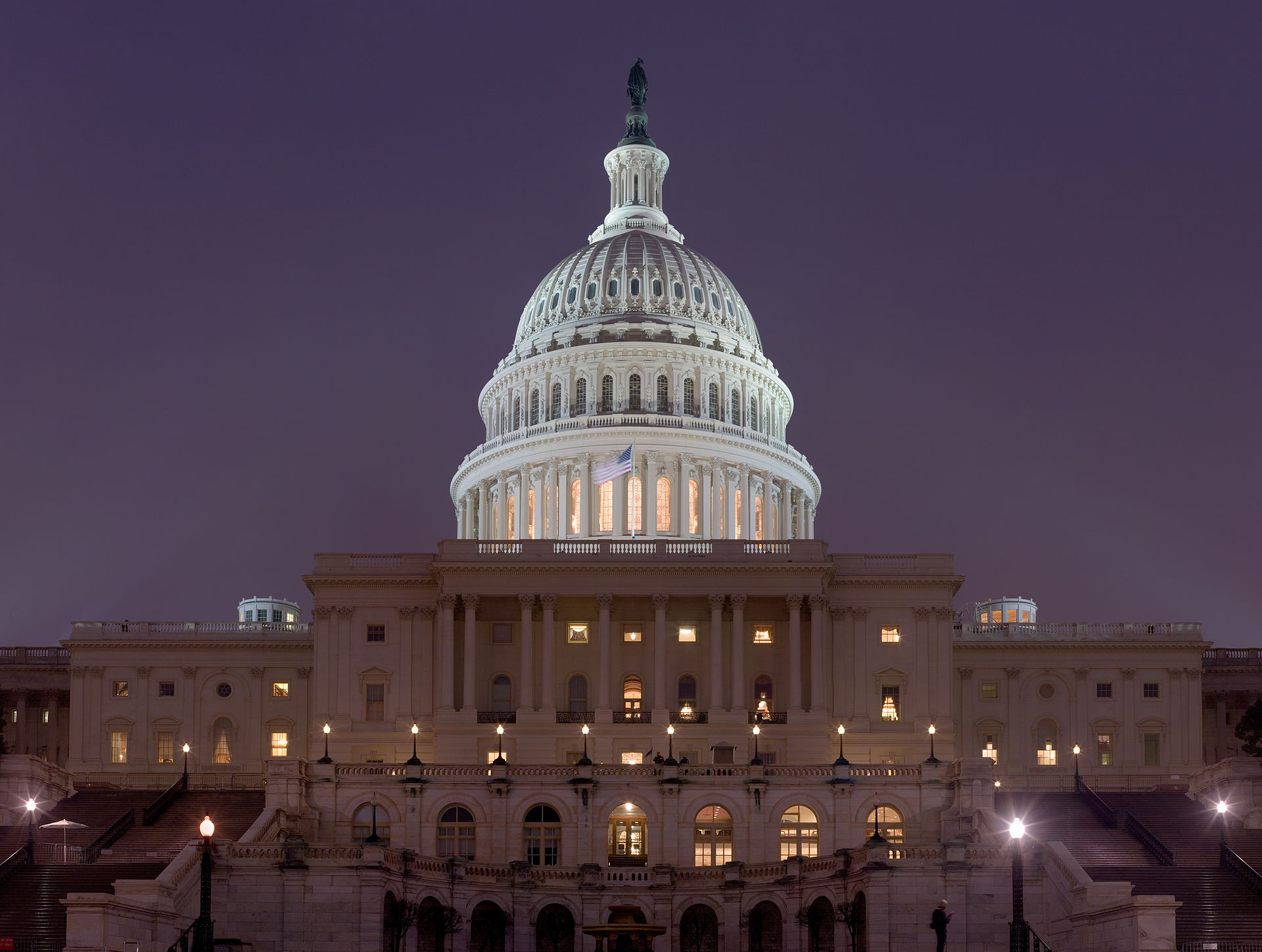
The Weaponization of the Government Against Civil Society
As it tries to silence dissent and punish opposition, the Trump administration is attacking the educational institutions, legal advocacy groups, and nonprofit organizations that strengthen our democracy. American Oversight is investigating how the president is abusing the power of the federal government to turn civil rights enforcement upside down and go after organizations committed to advancing the public good.

Our political system is made up of more than just government agencies. It is also bolstered by countless civic organizations and education institutions that serve vulnerable communities and hold the government accountable. And those groups are in President Trump’s crosshairs as he seeks to silence dissent and distort civil rights protections to serve his political agenda and consolidate power.
The administration is manipulating two issues that have made headlines and generated controversy — protests of Israel’s war in Gaza and initiatives geared toward advancing diversity, equity, and inclusion (DEI) — to target entities that are less likely to garner vocal defense: elite universities and law firms. By picking targets that evoke little public sympathy, the administration is testing how far it can go in punishing dissent before turning that machinery on communities with less power or visibility. If Trump is allowed to use the government to attack any entity that defies or challenges him, it will become even harder to protect the vulnerable groups who are most harmed by his agenda.
At the center of Trump’s attacks on civil society is the far-right idea that DEI policies — measures designed to mitigate centuries of oppression of people of color, women, people with disabilities, and other vulnerable groups — are discriminatory. Trump has taken aim at higher education, nonprofits, the legal profession, and any efforts to provide better representation for our diverse society. The administration has cut federal funding to universities that resisted orders to end DEI initiatives, intimidate student protesters, and turn over data. His efforts to eliminate opposition have also led to threats to revoke the tax-exempt status of universities, government accountability groups, and climate organizations — a financial deathblow that would shut down many groups — as well as punitive actions against law firms that had legally challenged his policies or worked for his political opponents. These intimidation tactics threaten the strength and very existence of the core structures that hold our government accountable and prevent the descent from democratic rule to authoritarianism, and American Oversight is investigating the implementation of these dangerous practices.
In line with the president’s upending of civil rights enforcement, the mission of the Department of Justice’s Civil Rights Division has been hijacked, with its work redirected to focus on fighting DEI initiatives instead of combating discrimination. Department attorneys who had previously focused on disability, voting rights, and police brutality cases were reassigned to other areas, prompting mass resignations as attorneys balked at the administration’s dismantling of offices intended to protect vulnerable groups. At the same time, Trump has established a “Task Force to Combat Antisemitism” to pressure universities to adopt policies that align with Trump’s aims of stifling campus protests and eliminating DEI programs. The task force’s recommendations resulted in sweeping funding cuts to Harvard University, Columbia University, Princeton University, the University of Pennsylvania, and others, with some quickly capitulating to the administration’s threats — in the case of Columbia, by overhauling campus protest policies and alarming many academic freedom advocates by appointing a senior vice provost to oversee its Middle Eastern, South Asian, and African Studies Department. The message to universities is clear: Adopt policies that threaten students’ civil rights and liberties or the administration will withhold vital funding.
Harvard University in particular has drawn the wrath of the administration thanks to its determination to fight the government’s unprecedented interference. In April, the task force demanded that Harvard University enact wide-ranging changes, including ending DEI-related programming, reviewing the political views of students and faculty to gauge “viewpoint diversity,” and placing certain departments under an outside audit. The administration also demanded access to all of Harvard’s hiring and admission data as well as quarterly status updates. When Harvard refused to cave to these gross violations of academic freedom and personal privacy, the administration froze more than $2 billion in grants to the school. Trump also publicly called on the Internal Revenue Service to revoke Harvard’s tax-exempt status, undermining the independence of an agency that was set up to enforce tax law impartially — not to be a weapon of a president’s political vendetta. Harvard sued the administration, alleging the funding freeze was unconstitutional and illegal.
The Trump administration quickly escalated its aggression. It cut an additional $450 million in federal funds after Harvard President Alan Garber countered the administration’s attacks in a letter to Education Secretary Linda McMahon, disputing her claims that the school had violated federal law. The administration also launched a highly unusual Justice Department investigation using the False Claims Act, claiming Harvard had defrauded the government by continuing affirmative action initiatives after the Supreme Court’s 2023 ruling effectively ending race-based admission programs. The administration pulled another $60 million in federal grants before announcing in late May that it would sever all remaining federal ties to the university, amounting to an additional $100 million in cuts. It also barred the university from enrolling international students, a key funding source, before a federal judge indicated she would issue an order to temporarily block the ban’s enforcement.
This calculated intimidation isn’t limited to academia. Trump has made clear that he plans to use many of these extortion tactics to suppress the work of any organization seen as opposing his anti-democratic agenda. In May, the Justice Department announced that it would use the False Claims Act to go after not just Harvard, but other recipients of federal funding that the administration perceives as “allow[ing] antisemitism and promot[ing] divisive DEI policies.” The month before, Trump told reporters that his administration was “looking at” Citizens for Ethics and Responsibility in Washington, a government accountability organization. “Tax exempt status — I mean, it’s a privilege,” he said. “It’s really a privilege, and it’s been abused by a lot more than Harvard.” That same month, rumors that Trump would sign an executive order to remove environmental groups’ tax-exempt status created upheaval among groups fighting climate change.
Trump has also taken aim at law firms that have worked with his opponents or challenged his agenda. In March, the Equal Employment Opportunity Commission began questioning the hiring practices of the country’s largest firms, claiming that attempts to recruit Black and Latino lawyers were potentially discriminatory against white attorneys. The administration has pulled security clearances for lawyers at firms like Perkins Coie, which represented Hillary Clinton’s 2016 presidential campaign, and WilmerHale and Jenner & Block. The administration has also barred certain attorneys from federal buildings and terminated federal contracts held by the firms or their clients. These acts of retribution also make it harder for nongovernmental organizations that rely on law firm representation to challenge actions by the administration that violate the law. Legal offices looking to avoid Trump’s wrath are hesitant to represent organizations going up against the administration, potentially allowing harmful and illegal measures to go unchecked.
Some firms have capitulated to the administration’s demands, agreeing to end DEI initiatives and provide a combined $1 billion of pro bono work for the administration. In reference to these deals, law professor Harold Hongju Koh told NPR, “A contract that you make with a gun to your head is not a contract.” A few law firms have fought these actions in court, and several federal judges have rejected the unconstitutional and retaliatory sanctions. “The order shouts through a bullhorn: If you take on causes disfavored by President Trump, you will be punished!” wrote one judge.
These tactics warp government agencies intended to serve all of the American people and turn them into authoritarian sledgehammers aimed at demolishing the president’s perceived foes. If civil society groups are steamrolled into compliance and those who stand up to Trump are punished, it will only become more difficult to stop Trump’s authoritarian agenda. The attacks won’t stop with Harvard and big law firms; once a government agency is weaponized, it can target a wider range of entities for smaller and smaller acts of defiance.
American Oversight is fighting back, enforcing the public’s right to government records that could provide key information about how the Trump administration is politicizing agencies like the IRS and the Justice Department to carry out its authoritarian attack on civil society. In May, American Oversight sued the IRS, the Treasury, and the Department of Education for communications between the IRS or Department of Education and the White House that could shed further light on the true motivations behind the president’s dangerous abuse of power.
American Oversight has also requested:
- Records to identify members of the Taskforce to Combat Antisemitism;
- Communications between Leo Terrell, the DOJ official reportedly in charge of the task force, and Chris Rufo, a leading opponent of DEI policies;
- Records regarding the task force’s determination to eliminate grants to Columbia University as well as any communications with the university or other key administration officials;
- Records regarding the task force’s creation, as well as any reports and determinations created by the task force;
- Email communications from the Environmental Protection Agency, IRS, and the Departments of Education, Homeland Security, State, Health and Human Services, and Justice related to potential attacks on civil society organizations;
- Communications between the IRS or Justice Department and anti-civil society groups; and
- Reports or documents created in response to Executive Order 14173, which directs the Justice Department, in collaboration with other agencies, to provide recommendations for enforcing federal civil rights laws in a way that targets DEI initiatives and affirmative action policies.
Attempts to punish law firms for representing the interests of the people, to strong-arm universities into adopting the administration’s preferred policies, and to intimidate organizations dedicated to the public good are just the beginning. Government agencies like the Department of Justice and the Internal Revenue Service should serve the American people — not the political interests of a president seeking to attack civil society groups that exercise the right to free speech and resist his agenda. Universities, legal groups, and nonprofit organizations help our democracy function by advocating for and protecting the people when their government fails them. If we lose these key institutions, Trump’s abuses of power — and the harm inflicted on vulnerable groups — will only intensify.




